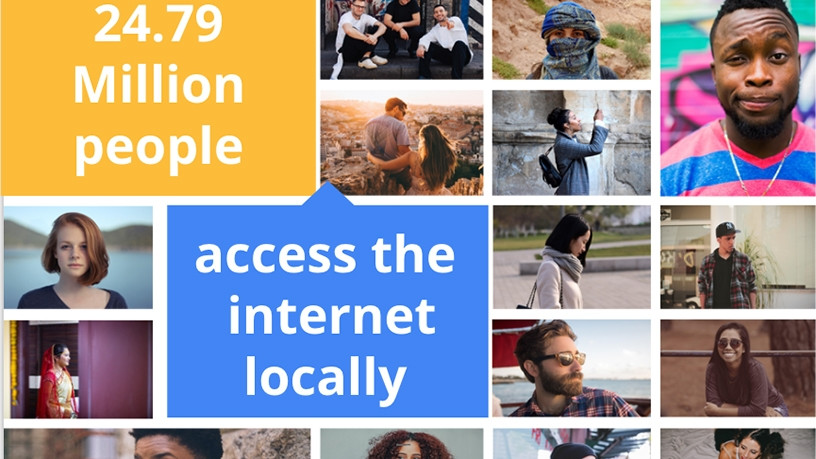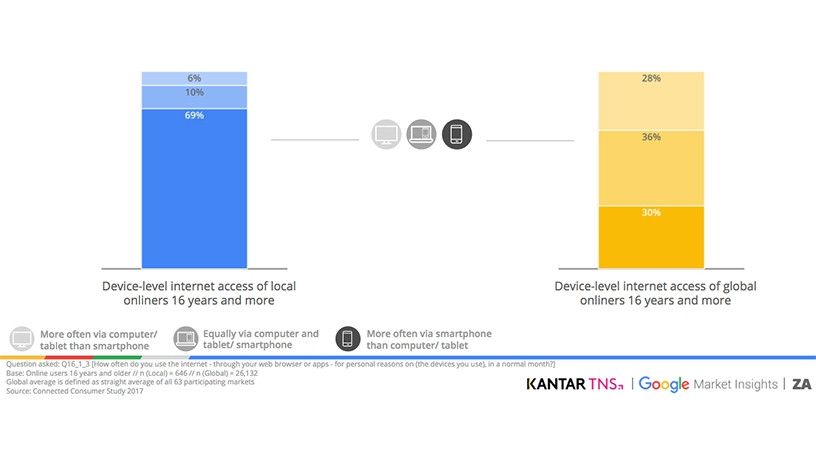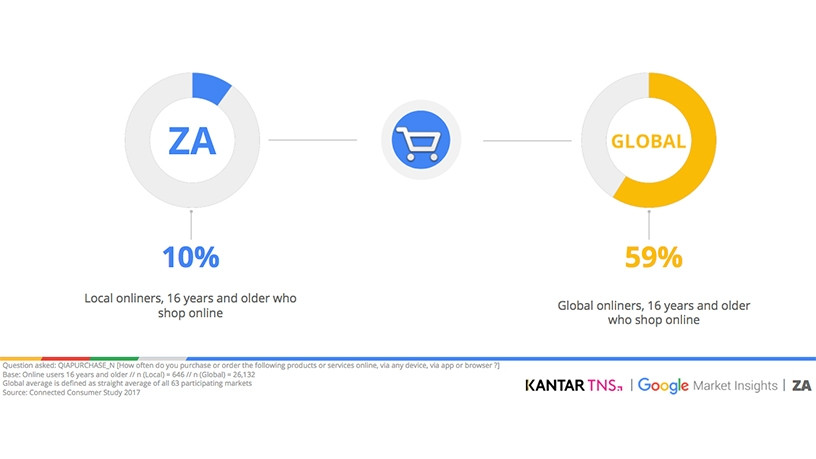
Internet usage globally is on the rise; however, for developing markets it is sometimes reserved for when people are in public WiFi hotspots or using a company-issued desktop during office hours.
A new study by Google has found 65% of South Africans aged 16 and above are now able to access the Internet while at home, either using household Internet or mobile data. This is up from 63% in 2016.
Google today launched the 2017 Connected Consumer Study, conducted by research group Kantar TNS.
The study polled consumers 16 years and older across 63 countries in Q2 2017. People from all nine of SA's provinces were interviewed, face to face; 60% in urban and 40% in rural areas.
The survey found that nearly 25 million South Africans (16+ years old) access the Internet locally for private purposes. The biggest demographic, making up a third of the online population, is aged between 25 and 34. The 16-19 group makes up 12%, 20-24 is 15%, 35-44 is 17%, 45-54 is at 10%, and the 55-plus group is 15%.
When compared with the global online distribution, SA's 'onliners' are younger, with 60% aged below 35 years, versus globally where only 34% are below 35.
Going online is a daily habit in the country with 65% of South Africans saying they access the Internet on a daily basis. Globally, daily access is at 87%.
SA's online population is split 50:50 men and women.
Accessing the Internet in SA is mostly done via a mobile phone, with 69% saying is the main device they use to search online. This is more than double global mobile Internet usage of 30%.
The main online activities in SA include visiting social media networks, using search engines, watching online videos, and looking up product information for purchase planning. The Internet is also used daily in SA to look up directions, listen to music, check e-mail and play games.
Online shopping is growing in popularity in SA. Currently, 2.5 million (10%) South Africans shop online and Google expects this to continue to grow, even though it is a small percentage compared to the rest of the world (59%).

For every person in SA, there are 1.4 connected devices, so there are already more devices than people. In 2014, the figure was 0.8. Globally there are now 2.9 devices per person, and Gartner predicts that by 2020 there will be 20 billion connected things.
More and more South Africans are using devices other than the traditional TV to watch video, as only 30% of respondents reported they use TV as the only device to consume video. The rest access videos both online and on TV.
Speaking about the way people often watch TV using more than one screen, Google says: "The traditional TV screen is today often surrounded by other connected devices, enticing people to go online while they watch TV ? we call this screen stacking ? which is already quite a common activity. This screen stacking is not necessarily always additive, as the vast majority of it is unrelated to what's on the TV at that time."
Google says in the near future, it expects technologies such as wearables, smart speakers, virtual reality headsets or apps on smart TVs to enrich the device ecosystem in people's homes.
The company says awareness of digital assistants, such as Apple's Siri or Google Assistant, is becoming apparent, with 16% of South Africans saying they know of digital assistant products, but are not necessarily using them. Google expects usage to increase over the next few years.

Share